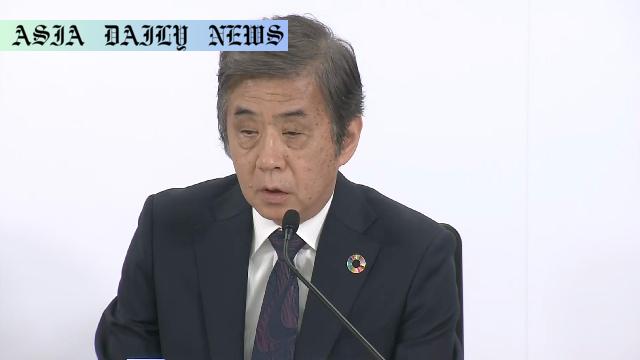Tariffs – Japan’s automotive sector calls for swift resolution to US tariff conflicts, emphasizing global free trade principles.
Tariffs: Japan’s automakers advocate for resolving tariff disputes promptly.
The 25% US tariffs threaten economic stability and trade relations globally.
Japan stresses the need for a free trade system and fair regulations.

The Growing Impact of US Tariffs on Japan’s Auto Industry
The recent imposition of a 25% tariff by the United States on vehicles and auto parts from Japan has cast a looming shadow over global trade. This development has not only raised concerns within Japan’s automotive sector but also highlighted potential repercussions for the world economy. The chairman of the Japan Automobile Manufacturers Association (JAMA), Katayama Masanori, has become a vocal proponent of finding an early resolution to the crisis. These new tariffs, linked to US trade policies under President Donald Trump’s administration, represent a significant obstacle not only to bilateral trade but also to multilateral ties. The tariffs’ influence has become evident in economic strain on both domestic and international markets, limited export flows, and increased costs to consumers.
The automotive industry in Japan, a vital pillar of its economy contributing significantly to GDP and exports, faces newfound challenges that could hinder its global competitiveness. The nature of this dispute underscores the complexities of globalization and national interests as they intersect in trade policies. Katayama has expressed a staunch belief in the virtues of free trade, emphasizing its historical role in fostering economic interconnectivity and innovation. He urges the Japanese government to prioritize active negotiations with the United States to ease tensions and ensure a fair, cooperative trade environment moving forward.
Aligning Safety and Trade Standards to Reduce Friction
One of the core issues raised in the tariffs dispute touches upon criticisms of Japan’s non-tariff barriers, including its auto safety and environmental standards. US stakeholders have raised concerns that these regulations create barriers to entry into Japan’s market. However, the JAMA chairman has refuted these claims by pointing out Japan’s long-standing commitment to promoting globally accepted practices around safety, environmental stability, and streamlined trade standards. Katayama’s remarks highlight the collaboration between Japan’s industry leaders and government authorities to adhere to international standards, ensuring their systems are both transparent and aligned with global norms.
As Japan faces pressure to address US critiques, the debate about non-tariff barriers presents an opportunity for both nations to redefine trade policies. The evolution of this situation could establish precedents for future trade negotiations globally. Free and fair trade depends on cohesion between varying international requirements and mutual respect for sovereign regulations, which Katayama suggests is achievable through proactive diplomatic efforts.
The Need for Swift Diplomatic Solutions
Addressing this tariff-induced turmoil promptly is imperative to prevent long-term economic consequences. Both the US and Japan rely on their automotive sectors not just as economic engines but also as symbols of cultural and technological innovation. For Japan, the industry accounts for substantial employment, supply chain activity, and international reputation. The possibility of trade disputes escalating could lead to damaging effects not just on bilateral relationships but across interconnected global markets, spanning Europe, Asia, and beyond.
Adding urgency to the matter is the unpredictable duration of these tariffs, which creates uncertainty among automakers, suppliers, and consumers. Katayama’s remarks indicate Japan’s resolve to address these challenges with resilience and innovation, ensuring its industries remain globally competitive. Key questions persist, such as how future agreements between Japan and the US might evolve to favor mutual prosperity, and whether other nations will learn from these negotiations as templates for their trade relationships.
Ultimately, maintaining open dialogues, fostering trust, and addressing shared concerns transparently will likely be the strategies that could resolve this dispute efficiently.
Commentary
Understanding the Broader Implications of Tariff Conflicts
The implementation of a 25% tariff by the United States on Japanese auto imports not only disrupts trade relations but also sets a stark example of how protectionist policies can send ripples through the global economy. As an industry leader, the chairman of the Japan Automobile Manufacturers Association clarified the gravity of this issue, highlighting challenges that go beyond national borders. The auto industry is an interconnected web, involving countless stakeholders, ranging from manufacturers to suppliers and consumers. The consequences of tariffs often extend to price inflation, reduced market flexibility, and economic slowdowns, making this negotiation crucial on multiple levels.
It is important to note that trade policies, especially in a globalized world, require strategic and cooperative approaches. Trade agreements, when mutually beneficial, have proven to foster innovation and competitive markets. However, when barriers such as tariffs arise, they disrupt these dynamics, creating uncertainty not only for businesses but also for workers and consumers who depend on the resulting goods and services. Japan’s stance, emphasizing free and fair trade practices, while staying true to globally recognized safety and environmental norms, demonstrates leadership rooted in rationality and a commitment to long-term global benefits.
The Road Ahead for US-Japan Relations
The US-Japan tariff conflict illuminates the delicate balance between enforcing national priorities and respecting international norms. Countries worldwide are watching closely as the two major economies engage in discussions to resolve these conflicts. A successful resolution could pave the way forward, serving as a global example of trade diplomacy and cooperative dialogue. On the other hand, a prolonged dispute represents a cautionary tale of how protective measures can rapidly spiral into counterproductive outcomes.
In conclusion, while the current challenges are undeniably pressing, the situation also provides an opportunity—an opportunity to rebuild trust, create innovative solutions, and redefine the frameworks under which future trade partnerships can thrive. With the world keeping a keen eye on developments, the actions and strategies of policymakers and industry leaders will undoubtedly shape the narrative and trajectory of not just the automotive sector but also international trade as a whole.


